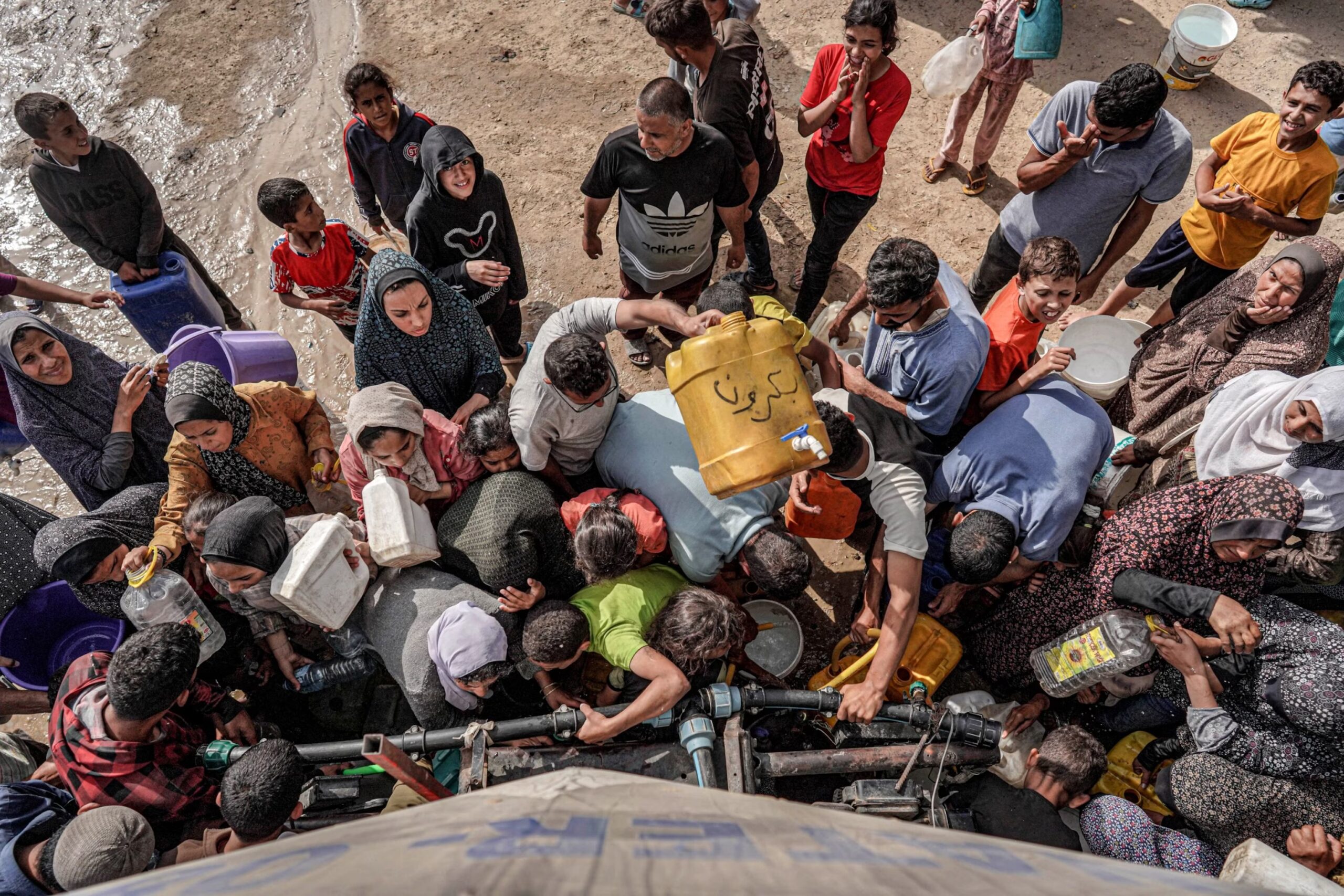The International Commission to Support Palestinian Rights (ICSPR) issued a press release yesterday, May 6, expressing its deep concern over Israel’s continued genocidal campaign and warning of the acute famine spreading among civilians in Gaza.
The press release highlights that famine has already claimed the lives of 57 children. It indicates that Israeli attacks have led to the killing, disappearance, arrest, and injury of nearly 200,000 people and the destruction of 88% of buildings and facilities in the Gaza Strip.
The organization also condemned the recent Israeli security cabinet decision to enact a plan to invade and occupy Gaza, which includes controlling the distribution of humanitarian aid in Rafah. The press release claimed that the plan marks a “clear escalation in the politicization of humanitarian aid and an obstruction to the work of relief organizations—part of a broader strategy to enforce starvation, extermination, and forced displacement of the population”.
At the moment, 91% of Gaza’s population suffers from food insecurity, whereas 2 million individuals are at risk of famine according to the press release. For more than two months (since early March 2025), Israeli forces have completely blocked humanitarian aid from entering Gaza.
The ICSPR called on all countries and international and regional organizations to fulfill obligations and exert significant pressure on Israel and the United States. The organization also called on all “free people of the world” to activate “all political, diplomatic, legal and popular movements to stop the expansion of Israeli aggression and genocide”, ensure the flow of essential aid and items to Gaza, isolate and boycott Israel, and hold leaders and partners accountable before international courts.
International Condemnations Mount Against Israeli Plans
Earlier on Sunday, May 4, the United Nations Office for the Coordination of Humanitarian Affairs (OCHA) had issued a statement by the Humanitarian Country Team of the Occupied Palestinian Territory on principled aid delivery in Gaza.
The statement condemned Israel authorities’ blocking of all supplies entering Gaza. It also stated that Israeli officials have sought to “shut down the existing aid distribution system run by the United Nations and its humanitarian partners” and have them agree “to deliver supplies through Israeli hubs under conditions set by the Israeli military, once the government agrees to re-open crossings”.
The statement adds that the plan will mean that large parts of Gaza with high levels of vulnerability will continue to go without supplies, that it contravenes fundamental humanitarian principles and that it “appears designed to reinforce control over life-sustaining items as a pressure tactic – as part of a military strategy”.
Finally, the statement firmly asserts that the UN Secretary-General and the Emergency Relief Coordinator have made clear that there will be no participation “in any scheme that does not adhere to the global humanitarian principles of humanity, impartiality, independence and neutrality”. The heads of all UN entities and non-governmental organizations under the Humanitarian Country Team have unanimously affirmed this position. The statement ends by urging word leaders to use their influence to allow the delivery of critical supplies and services to Gaza, as the teams and stock remain ready.
As European Union foreign ministers gather in Poland, Netherlands’ Caspar Veldkamp is putting Israel-Gaza “squarely on the table”, according to Politico, with Veldkamp requesting a review of Israel’s compliance with the EU-Israel association agreement, particularly regarding Article 2 which focuses on Israel’s obligations under humanitarian law.
Veldkamp raised doubts about Israel’s efforts to distribute aid in Gaza and stated that he withholds Netherlands’ support for extending the EU-Israel Action Plan (which is the operational part of the association agreement) pending a review of Article 2, which a Dutch veto “would render moot” according to the Politico article. This goes hand-in-hand with a general Dutch direction of tightening restrictions on exports to Israel and taking distance from Israel. However, Veldkamp specified that he supports Israeli security and calls for the release of all hostages held by Hamas, but called for a “broader reflection on and discussing of” their relationship with Israel, underlining deep concerns about Israel’s operations in Gaza, Syria and the West Bank.


